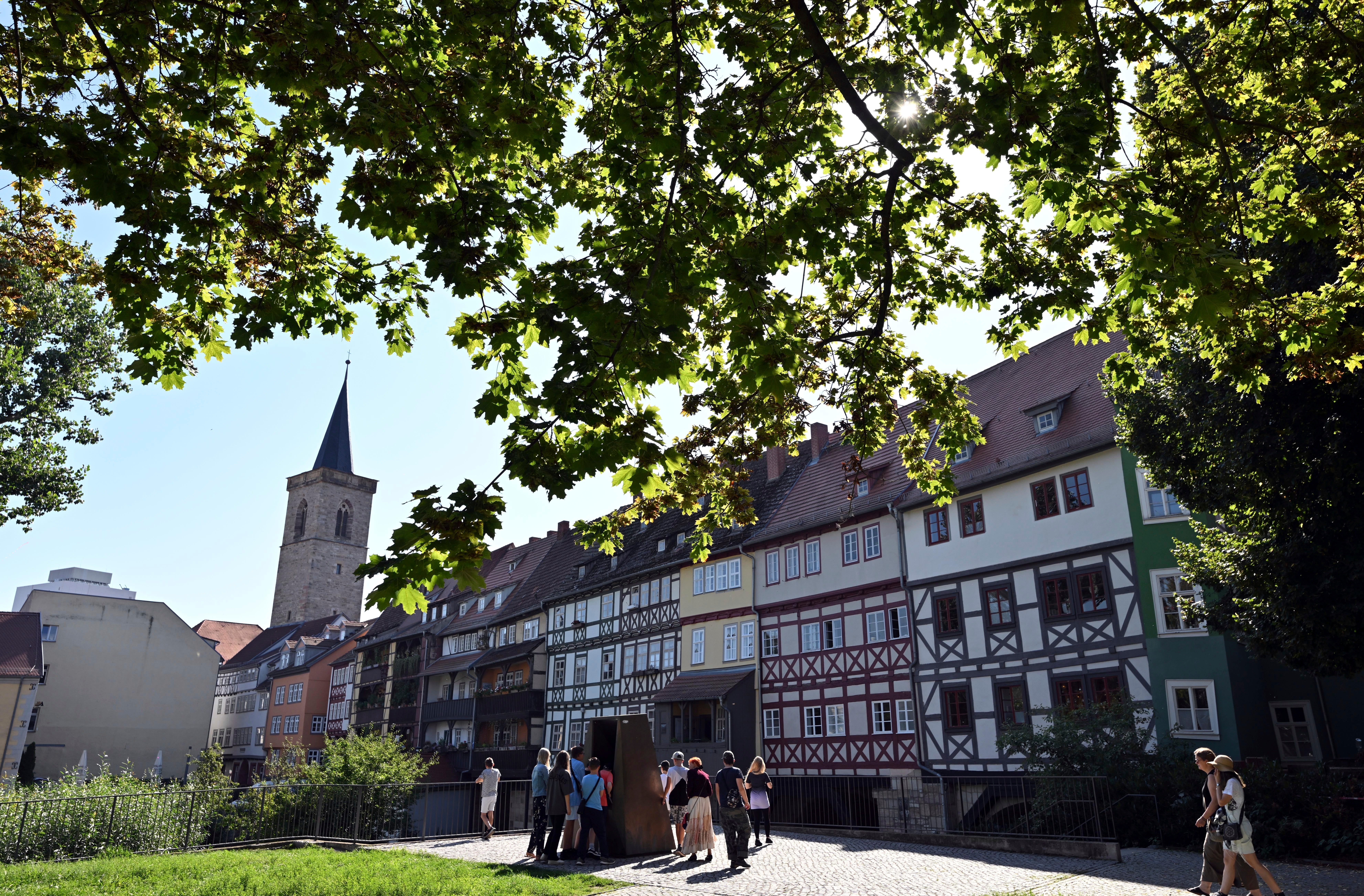UNESCO names Erfurt's medieval Jewish buildings in Germany as a World Heritage Site
A U.N. committee has named a group of medieval Jewish sites in the eastern German city of Erfurt as a World Heritage Site

Your support helps us to tell the story
From reproductive rights to climate change to Big Tech, The Independent is on the ground when the story is developing. Whether it's investigating the financials of Elon Musk's pro-Trump PAC or producing our latest documentary, 'The A Word', which shines a light on the American women fighting for reproductive rights, we know how important it is to parse out the facts from the messaging.
At such a critical moment in US history, we need reporters on the ground. Your donation allows us to keep sending journalists to speak to both sides of the story.
The Independent is trusted by Americans across the entire political spectrum. And unlike many other quality news outlets, we choose not to lock Americans out of our reporting and analysis with paywalls. We believe quality journalism should be available to everyone, paid for by those who can afford it.
Your support makes all the difference.A U.N. committee on Sunday named a group of medieval Jewish sites in the eastern German city of Erfurt as a World Heritage Site, the second time Jewish heritage in Germany has been added to the list in recent years.
Among the buildings included in the new designation are Erfurt’s Old Synagogue, a 13th-century stone building that illustrates Jewish family life in the medieval era, and a traditional ritual bath, or mikveh.
The decision was made at a meeting of the U.N. World Heritage Committee in Riyadh, Saudi Arabia, under the auspices of the U.N. Educational, Scientific and Cultural Organization, UNESCO.
Erfurt’s Jewish heritage sites have a long history, but had been largely forgotten until relatively recently. After pogroms in the 14th century drove much of Erfurt’s Jewish population out of the city, the Old Synagogue was used as a storehouse and then a restaurant and dance hall. Its historical importance was only rediscovered and established in 1988.
The ritual bath was filled in and used as a cellar for centuries and was only recognized for its historical and cultural background in 2007.
“The Jewish monuments of Erfurt were nearly forgotten for centuries,” said Maria Boehmer, president of the German UNESCO commission. “Their rediscovery is a great gift.”
Paris-based UNESCO began the World Heritage List in 1978. It includes a broad array of over 1,000 sites — from the Acropolis in Athens to the Great Wall of China — nominated by their respective nations.
Sunday’s news comes two years after UNESCO first recognized Jewish cultural heritage sites in Germany. That year, it added the so-called ShUM Jewish sites in the Rhine river cities of Mainz, Worms and Speyer to its list of World Heritage Sites.
UNESCO’s choice to also add Erfurt “makes a further important contribution to making the common roots of Jews and Christians in Germany and Europe visible and preserving them for the future,” Kerstin Puerschel, Germany’s ambassador to UNESCO, said in a statement.
The inclusion of Erfurt brings the total number of World Heritage Sites in Germany to 52.